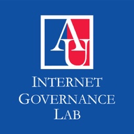This year, we celebrate the 10th anniversary of the publication of Protocol Politics: The Globalization of Internet Governance by NetGov Lab Faculty Director Laura DeNardis. The main thesis of her 2009 book is that protocols are political as well as technical artifacts. Dr. DeNardis argues that the oft-overlooked underlying infrastructure of the internet are built through decisions that are inherently political. A controversial thesis at the time, this idea has become central to discussions of internet governance issues today.
Taking the case of Internet Protocol Version 6 (IPv6), Dr. DeNardis describes the political decisions that went into establishing it as the technical standard. She examines the technical and political process behind the establishment of IPv6 as the technical standard to address resource scarcity. She explores the emergence of concerns about the scarcity of internet addresses and the competition between two sets of protocols, pushed by two different standard-setting organizations, to become the standard.
In 2009, Dr. DeNardis warned that we shouldn’t take for granted the continued success of the internet in promoting “economic opportunity and human flourishing.” This possibility, she said, depends on the “ongoing availability of a technology commons in which the resources necessary for exchanging knowledge are openly and abundantly available.” Ten years hence, as governments around the world indulge in internet shutdowns, censorship of online speech is prevalent, and the relationship between the internet and human rights is put under the microscope, this idea remains as critical as ever.
Since the publication of the book, people involved in the Internet Engineering Task Force (IETF) have engaged in some important human rights related activities, recognizing the the political significance of their technical work. For instance, the Human Rights Protocol Considerations Research Group was chartered in 2017 to research how standards can “enable, strengthen or threaten human rights, as defined in the Universal Declaration of Human Rights (UDHR) and the International Covenant on Civil and Political Rights (ICCPR).”
As the internet’s relationship with human rights takes center-stage, Protocol Politics reminds us to take a look under the hood and examine the decisions that go into creating the infrastructure of the internet. These decisions, as Dr. DeNardis explains, are often as political as they are technical.

